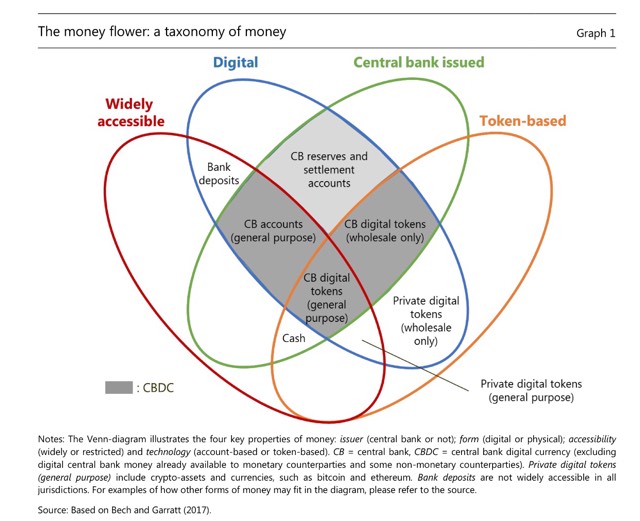
How many central banks are actually considering their own version of cryptocurrency is unclear, Russia and Venezuela being the most infamous examples. To perhaps ward off serious consideration from more established economies, the Bank for International Settlements (BIS), the world’s central bank to central bankers, is suggesting state-backed crypto might destabilize commercial banks’ customer deposits, negatively impacting the “efficiency of financial intermediation.”
Also read: Québec Premier: We’re Not Really Interested in Bitcoin Mining
Central Banks Warned About State-Backed Crypto
Chairs of two BIS working groups, Klaus Löber (European Central Bank) and Aerdt Houben (Netherlands Bank), submitted Central Bank Digital Currencies, a 34-page document meant to be a “high-level overview of [central bank digital currency (CBDC)] implications for payments, monetary policy and financial stability. The analysis of the committees reflects initial thinking in this rapidly evolving area and is a starting point for further discussion and research. It also highlights that the issuance of a CBDC requires careful consideration,” it outlines in the Foreword.
The word, “careful,” in one form or another, is sprinkled half a dozen times throughout, as in “Any steps towards the possible launch of a CBDC should be subject to careful and thorough consideration. Further research on the possible effects on interest rates, the structure of intermediation, financial stability and financial supervision is warranted. The effects on movements in exchange rates and other asset prices remain largely unknown and also deserve further exploration.”

The BIS has been particularly vocal of late on the subject of crypto, as when last month its General Manager stressed “while perhaps intended as an alternative payment system with no government involvement, it has become a combination of a bubble, a Ponzi scheme and an environmental disaster.” The 87 year old, Basel, Switzerland-based central bank is the world’s lender of last resort to the lenders of last resort.
The report is revealing in the sense it appears cryptocurrency is an increasingly important topic of conversation, and that at least some central banks are considering competing alternatives as perhaps an answer. Where last month’s BIS comments dismissed crypto, the present report doesn’t outright condemn a state-backed coin. The paper “finds that wholesale CBDCs might be useful for payments but more work is needed to assess the full potential. Although a CBDC would not alter the basic mechanics of monetary policy implementation, its transmission could be affected.”
Wholesale Is Preferable for Central Banks
 Klaus Löber
Klaus Löber
“Many forms of CBDC are possible,” the report emphasizes, “with different implications for payment systems, monetary policy transmission as well as the structure and stability of the financial system. Two main CBDC variants are analysed in this report: a wholesale and a general purpose one. The wholesale variant would limit access to a predefined group of users, while the general purpose one would be widely accessible.”
By contrast, “A general purpose CBDC could have wide-ranging implications for banks and the financial system. Commercial banks’



